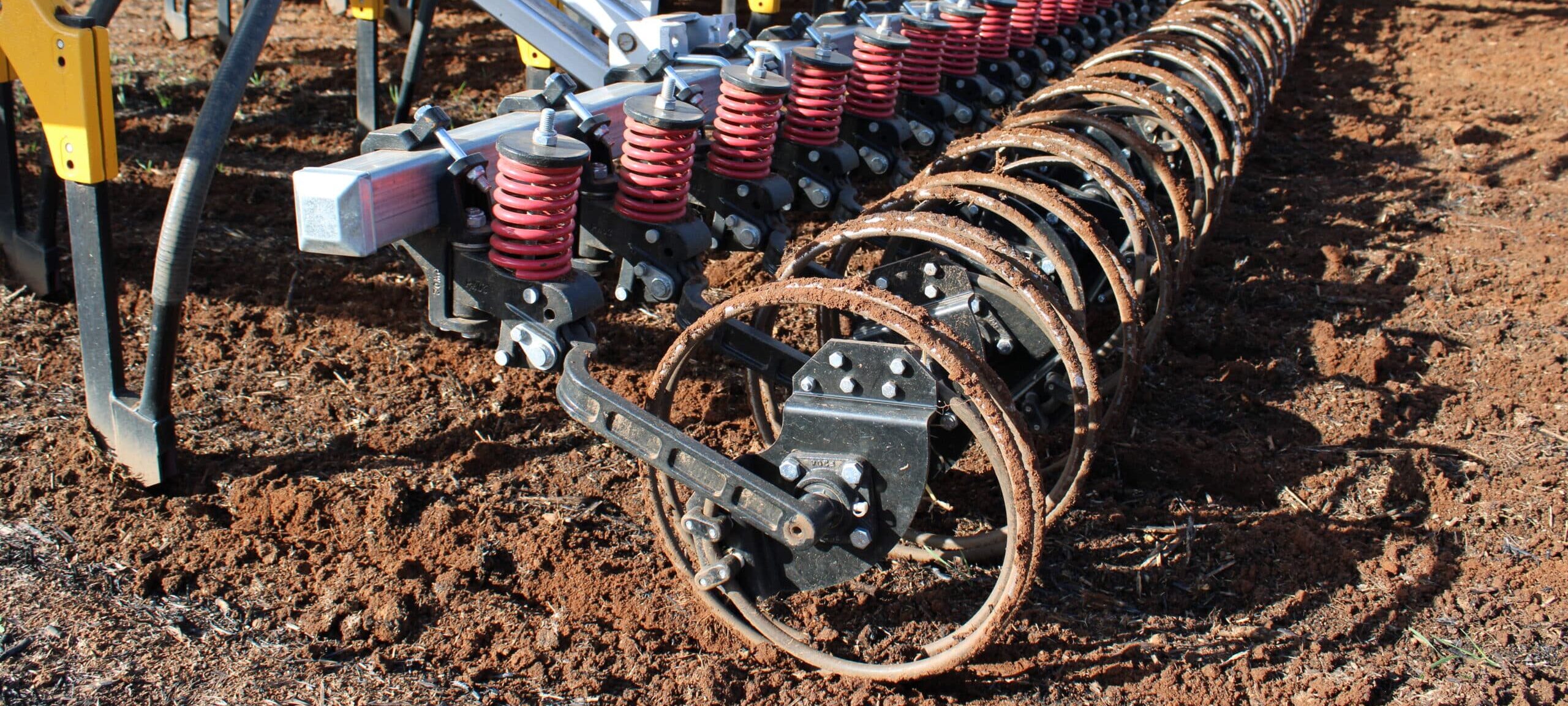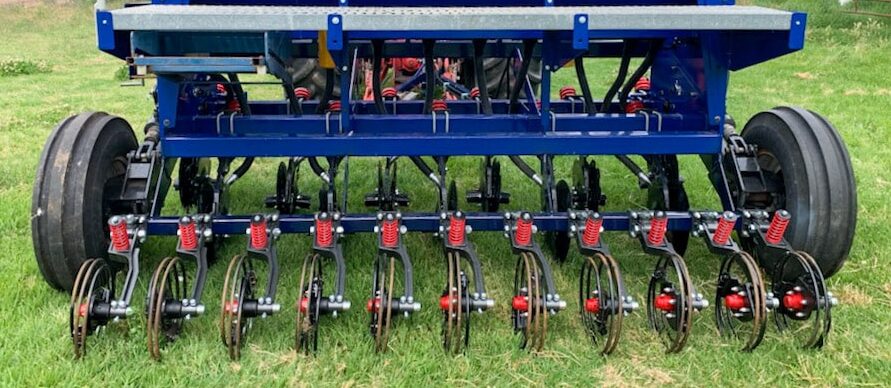Press Wheel Tyre Pressure - Your Options
When selecting a press wheel tyre, ensure it has the correct pressure; the rule is simple: ‘best pressure for best results…wrong pressure, wrong results.’
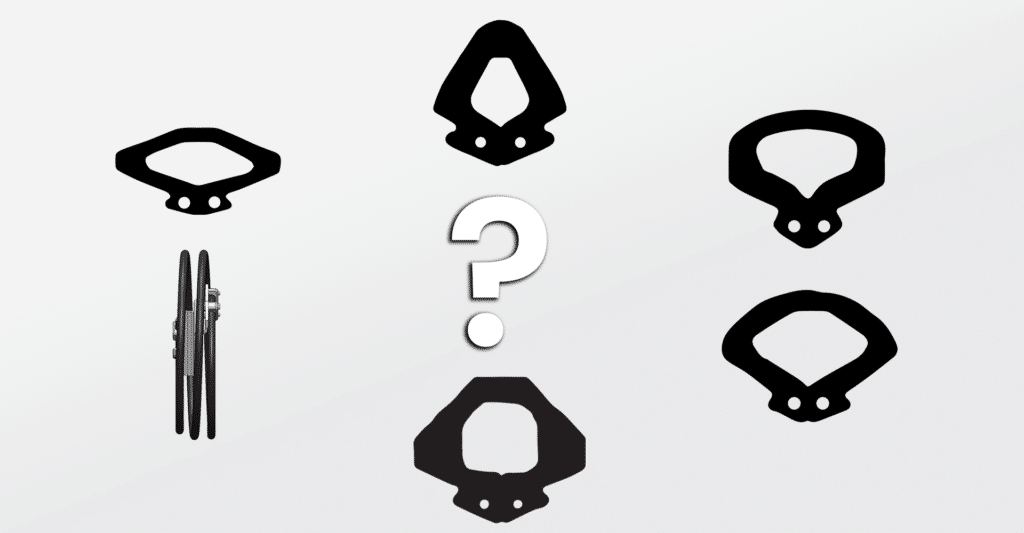
Benefits for getting press wheel pressure right
The big one comes through seed emergence and seedling durability, from 10% to 25%!
On top of that these revolutionary Press wheels also…
- Increase seed-to-soil contact
- Maximise moisture retention
- Reduce emergence depth
- Improves uniformity of soil coverage
- Close the seed furrow
- And promotes faster secondary root development.
When choosing a drill press wheel system, we encourage you to consider (a) the paddock conditions and (b) what you want to achieve regarding crop yield because both will influence press wheel performance. The right decision made upfront could save heaps on equipment cost and maximise crop yields.
Common Press Wheel Tyres
The best tyre material and press wheel pressure for your planter depends on your soil type, soil moisture level, crop type, and planting time.
The most common tyre material with press wheels is a soft, flexible compound that provides good self-cleaning capabilities but is not very durable and does not handle stones, wires, or sharp sticks well. Hard tyres are best for the country where you have a lot of rock but require scrapers in heavy wet conditions after rain.
When you sow some of your crop dry, which is the trend for many growers, you may need different tyres for different conditions. For instance, a hard tyre is best for dry conditions, and a soft semi-pneumatic tyre is best for wet soil conditions. You may face a dilemma if you only have one type.
What tyre should I use?
Growers commonly use semi-solid tyres when using a press wheel to close the soil and in highly abrasive soils. However, they are not ideal for sticky soil conditions, where soil build-up can become problematic.
Very soft high-flex tyres may be better suited if you have sticky-soil conditions, as this can minimise soil clinging to the tyre and causing problems. These tyres are designed for working in clay soils and are ideal for farmers who may encounter sticky sowing conditions. Using in dry or rough conditions may cause them to be damaged.
Soil type, soil moisture level, crop type, and planting time will help to determine your optimum press wheel pressure. Your press wheel must close the planting slot, and generally, if you have wet conditions and lighter sandier soil, a lower pressure should be used.
Common Press Wheel Tyres

Common Variations
- Available in 2 coil and 3 coil models.
- Spoked heavy duty models available for tougher conditions.
- 2 Coil Wheel Width: Uncompressed 50mm or 28mm when compressed.
- 3 Coil Wheel Width: Uncompressed 75mm or 45mm when compressed
Suitability
Works well in all regions.
Used extensively in regions where systems and conditions vary.
2 coil ideal for single, narrow-row seeding.
3 coil for split row seeding (wide row seeding).
Paddock Surface
- Leaves paddocks rough for great water harvesting.
Benefits
Very good seed-soil contact.
- Good scattering of loose soil above pressed seed.
Won't smear soil due to the flexing of the coil.
Depth Control
- Great depth control in all soil types.
Durability
- Above average wear and durability due to spring steel material that can handle most conditions.
Self-cleaning
- Very good mud-shedding capability.
- Handles clay and sticky soils well.
Tyre Pressure
- Universal and can work in conditions requiring low, medium or high tyre pressure.
Things to be aware of
- May squash with parallelogram weight if not using the spoked heavy-duty model.
- Heavy-duty model available.
For more info click here

Common Variations
- Available in high-flex, semi-pneumatic, semi-solid and solid.
- 3” -80mm and 4.5” – 120mm overall width, 1” flat tip.
Suitability
- Works well in all regions.
- Used extensively in regions where systems and conditions vary.
- Ideal for single, narrow-row seeding.
Paddock Surface
- Tends to leave paddocks rough.
Benefits
- Good moisture-harvesting properties
- Provides a good balance between
seed-soil contact and moisture harvest - Good tracking characteristics.
Depth Control
- Good depth control in medium to light soils.
Durability
- Above-average wear and durability, particularly semi-pneumatic type
- Good wear and durability, particularly with solid and semi-solid
Self-cleaning
- Average to good mud-shedding capability, particularly semi-pneumatic and high-flex configurations
Tyre Pressure
- High-pressure tyre.
Things to be aware of
- Not recommended in very rough or very abrasive soils.

Common Variations
- Available in high-flex, semi-pneumatic and solid.
- 4”-100mm and 5”-120mm overall width.
Suitability
Works well in Northern WA, Eastern and Central Victoria. Hi-Flex version is very popular in Clermont (QLD).
More common in areas with above-average rainfall or sandy soils.
Ideal for spread-row or split seeding.
Benefits
Very good seed-soil contact.
Good scattering of loose soil above
pressed seed.Good for canola and other small seeds.
Paddock Surface
- Leaves paddock smooth.
Depth Control
- Good depth control in medium to light soils.
Durability
Average wear and durability (semi-pneumatic).
Good wear and durability (solid).
Self-cleaning
- Good mud-shedding capability
(semi-pneumatic).
Tyre Pressure
- Low-pressure tyre.
Things to be aware of
Does not handle conditions requiring high pressures well.
Can shoulder out in some conditions.

Common Variations
- Available in semi-pneumatic and solid.
- 3”-75mm and 4”-100mm overall width.
Suitability
Semi-Pneumatic works well Central Victoria, and the Solid and Semi-Solid works well in West Coast SA and WA.
More common in areas with above-average rainfall or sandy soils.
Ideal for spread-row or split seeding.
Benefits
Very good seed-soil contact.
Good scattering of loose soil above
pressed seed.Good for canola and other small seeds.
Paddock Surface
- Leaves paddock smooth.
Depth Control
- Good depth control in medium to light and sandy soils.
Durability
- Solid format has very good durability, handles rock well.
Self-cleaning
- Semi-pneumatic format handles sticky soils well.
Tyre Pressure
- Medium-pressure tyre.
Things to be aware of
- Properties similar to but less pronounced than wedge or flat profiles.
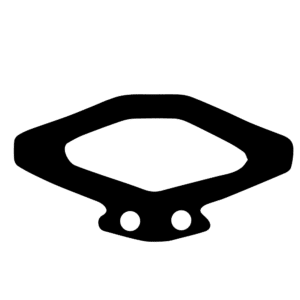
Common Variations
- Available in semi-pneumatic and solid rubber.
- 4” -110mm overall width, 1.5” flat tip.
Suitability
Work well in SA Mallee, SA West Coast, Central and Northern WA.
Good for spread and split-row seeding where some moisture harvesting is required.
Benefits
Above-average moisture-harvesting
properties.Good all-purpose profile gives a good
balance between seed-soil contact and moisture harvest.Good tracking characteristics.
Good for smaller seeds.
Paddock Surface
- Will not leave paddocks as rough as the 3″ wedge.
Depth Control
- Good depth control in light and sandy
soils.
Durability
- Above-average wear and durability.
Self-cleaning
- Average to good mud-shedding capability.
Tyre Pressure
- Low-pressure tyre.
Things to be aware of
Does not handle cloddy soil well.
May shoulder out in heavy soils or
behind some knife points.May require ticklers/snake chain to give soil scatter over pressed seed.
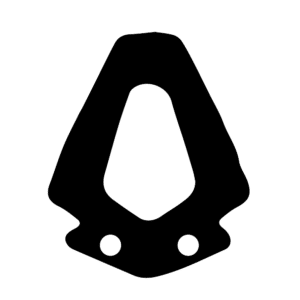
Common Variations
- Available in semi-pneumatic, semi-solid and solid.
- 2”-55mm overall width, 3/4” flat tip.
Suitability
Regions Southern Queensland and Northern NSW.
Good seed-soil contact when drilling
deep.Good for cereals and larger seeds.
Ideal for single narrow-row seeding.
Benefits
Very good moisture-seeking and
moisture-harvesting properties.Good tracking characteristics.
Paddock Surface
- Tends to leave paddocks rough.
Depth Control
Good depth control in heavy soils.
Durability
- Solid has very good durability.
Self-cleaning
- Semi-pneumatic has good mudshedding capability.
Tyre Pressure
- High-pressure tyre.
Things to be aware of
Solid does not have good mud-shedding ability.
Poor depth control in light soils.
Semi-pneumatic has average to low wear and durability.

Common Variations
- Medium and narrow flat (sometimes referred to as square).
- 2”-55mm and 3” -80mm overall width.
Suitability
Works well in Southern Queensland and Central Northern NSW.
More common in areas of above-average rainfall.
Benefits
Very good seed-soil contact.
- Good scattering of loose soil above pressed seed.
Paddock Surface
- Doesn’t leave paddocks rough.
Depth Control
- Good depth control in medium to light and sandy soils.
Durability
Semi-pneumatic has average to low wear and durability; does not like dry
seeding.Solid has good wear and durability but
does not handle the sticky soils well.
Self-cleaning
- Very good mud-shedding capability.
- Handles clay very well.
Tyre Pressure
- Low to medium-pressure tyre.
Things to be aware of
- Semi-Pneumatic does not like dry seeding.
- Solid does not handle sticky soils well.
- Does not handle cloddy soil well.
Self-cleaning Press Wheel from RYAN NT
RYAN NT, an Australian press wheel manufacturer, has a unique self-cleaning spring coil press wheel that improves seed-to-soil contact and gives much better even germination. This product has switched the rubber tyre for a spring coil that naturally flexes to self-clean the mud from working in sticky conditions.
The universal coil wheel can work in conditions requiring low, medium or high press wheel pressure.
The material of the spring coils makes it more durable than rubber and means you won't have to replace rubber wheels, especially if you're working in stony conditions.
The coils press air out from the soil around the seed to produce great seed-soil contact. Further, the natural flexing can reduce pressure directly on the surface, eliminating crusting and smearing problems and forming air pockets.
Additionally, the coil wheels work in most soil types, such as heavy stubble, trash, sticky, sandy and light soils, without picking up seeds from the furrow.
Finally, an excellent loose tilth and a hard press are created above the seed, which means the potential for much better yields.
Additional factors to consider when thinking press wheels
In addition to press wheel pressure, there are several factors to consider when choosing the right press wheel system:
- Topographical characteristics, you should consider whether your country is hilly or flat and the amount of rock or hard-setting compacted soil you have.
- Predominant soil types, you should understand their characteristics when dry and wet, and how abrasive they are must also be considered.
- Your average rainfall, including the amount of rain received during germination and establishment, is also essential.
- The type of crops you are planting, their seed sizes, and their sensitivity to depth and pressure are also factors.
- Your seeder type and make, its characteristics, including the disc or point type, depth control, trash handling capabilities, breakout mechanism and pressure, and the seed box's location in the seeding rig.
- Your seeding system and its configuration, including row spacing and working speed, the percentage of dry sowing, whether you place your fertiliser with or below the seed, and the amount of residue typically on the soil surface are also important factors.
Most importantly...
- Consider the options that will most likely be practical for your situation. For example, many growers are concerned about how press wheels will perform in sticky conditions while an increasing area of the grower's crop is being sown dry.
- Your main consideration should be press wheel performance in dry conditions, not sticky ones. Claggy soil will probably be your dominant issue if you still wait for rain before seeding. For growers who dry sow or usually find themselves chasing deep moisture, suitability for these conditions should be the primary consideration.
Helpful terms when looking at press wheels
When you are discussing press wheels and press wheel pressure with potential suppliers, the following terms certain terms may be helpful to you:
- The centre mechanism refers to the hub mechanism used to carry the tyre. The most common centre mechanisms are an integral hub, HT/Ford/BMW hub, sealed-bearing hub, and nylon bush.
- The diameter is the tyre's outer diameter, and you will usually be quoted this in inches. Diameters usually range from 10″ to 21″ and are nominal, not exact. Larger-diameter tyres are more durable than smaller ones, reducing wear on components such as bearings.
- The tyre's width is measured at the widest part of the tyre and ranges from 25mm to 150mm. It affects how much press wheel pressure you can apply over the seed or slot.
- The shape is the tyre profile and can include flat, wedge, round, and dome shapes.
- The material refers to the tyre compound's chemical composition, affecting the tyre's softness, hardness, and durability.
- The tyre relates to the tyre's structure, with most tyres being solid, semi-solid, semi-pneumatic, pneumatic, or high-flex.
Conclusion
Selecting the right press wheel tyre is essential for achieving optimal results. Press wheel pressure is critical in ensuring accurate seed placement, good seed-to-soil contact, and proper seed depth, all necessary for achieving uniform crop emergence and maximising yields.
It is recommended to consult with a knowledgeable professional, such as an agronomist, to determine the appropriate press wheel tyre for your specific needs and conditions. Additionally, regular maintenance of your press wheels can help ensure optimal performance and maximise yield potential.
Get in touch with RYAN NT if you would like to try our Coil Press Wheel Option out.


